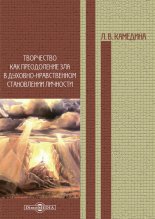Необязательная страна Наср Вали

114 Farideh Farhi, «Anatomy of a Nuclear Breakthrough Gone Backwards», Middle East Research and Information Project, December 8, 2009, http://www.merip.org/mero/merol120809.
115 Martin Indyk, Kenneth G. Lieberthal, and Michael O’Hanlon, Bending History: Barack Obama’s Foreign Policy (Washington, DC: Brookings Institution, 2012), pp. 196—98.
116 John Parker, Persian Dreams: Moscow and Teheran Since the Fall of the Shah (Washington, DC: Potomac Books, 2008).
117 Mark Katz, «Iran and Russia», Iran Primer, United States Institute for Peace, http://iranprimer.usip.org/resource/iran-and-russia.
118 Parsi, Single Roll of the Dice, p. 193.
119 «The Iran Nuclear Issue: The View from Beijing», Asia Briefing no. 100 (overview). International Crisis Group, February 17, 2010, http://www.crisisgroup.org/en/regions/asia/north-east– asia/china/B100-the-iran-nuclear-issue-the-view-from-beijing.aspx.
120 Dennis Ross and David Makovsky, Myths, Illusions, and Peace: Finding a New Direction for America in the Middle East (New York: Viking, 2009), p. 221.
121 Parag Khanna, The Second World Empire and Influence in the New Global Order (New-York Random House, 2008).
122 Parsi, Single Roll of the Dice, pp. 172–193.
123 Там же. С. 187.
124 Там же. С. 192.
125 Julian Borger, «Text of the Iran-Brasil0Turkey Deal», Guardian, May 17, 2010, http://www.guardian.co.uk/world/julian-borger-global-security-blog/2010/may/17/iran-brasil-turkey-nuclear.
126 Sanger, Confront and Conceal, pp. 186—87. Roger Cohen, «Doctrine of Silence», New York Times, November 28, 2011. http://www.nytimes.com/2011/11/29/opinion/cohen-doctrine-of-silence.html.
127 Hussein Mousavian, Iran’s Nuclear Crisis, p. 17.
128 Roger Cohen, «Doctrine of Silence», New York Times, November 28, 2011. http://www.nytimes.com/2011/11/29/opinion/cohen-doctrine-of-silence.html.
129 Mark Perry, «False Flag», Foreign Policy, January, 13, 2012, http://www.foreignpolicy.com/articles/2012/01/13/false_flag.
130 «Spymaster: Meir Dagan on Iran’s Threat», 60 Minutes, March 11, 2012, http://www.cbsnews.com/8301—18560_162—57394904/the-spymaster-meir-dagan-0n-irans-threat/?tag=contentMain; cbsCarousel.
131 Roger Bergman, «Will Israel Attack Iran?» New York Tomes, January 29, 2012, p. MM22.
132 Vali Nasr, «Hard-Line U. S. Policy Tips Iran Towards Belligerence», Bloomberg View, January 4, 2012, http://www.bloomberg.com/news/2012—01–05/hard-line-u-s-policy-tips-iran-towards-belligerence-vali-nasr.html; «Council on Foreign Relations Foreign Affairs Focus: Vali Nasr on US-Iran Relations», YouTube, January 25, 2012, http://youtube/NaFC9WFUPfc.
133 Fareed Zakaria, «To Deal With Iran’s Nuclear Future, Go Back to 2008». Washington Post, October 26, 2011, http://www.washingtonpost.com/opinions/to-deal-with-irans-nuclear-future-go-back-to-2008/2011/10/26/gIQADQyEKM_story.html?hpid=z3.
134 William H. Luers and Thomas Pickering, «Military Action Isn’t the Only Solution to Iran», Washington Post, December 30, 2011, http://www.washingtonpost.com/opinions/military-action-isnt-the-only-solution-to-iran/2011/12/29/gIQA69sNRP_story.html; William H. Luers and Thomas Pickering, «Envisioning a Deal with Iran», New York Times, February 2, 2012, http://www.nytimes.com/2012/02/03/opinion/envisioning-a-dael-with-iran.html.
135 Kateria Azarova and Anissa Naouai, «Step by Step: Russia’s Plan to Bring Iran Back for Good», RT News, August 17, 2011. http://rt.com/politics/iran-approves-russian-nuclear/.
136 «Iran Will Consider Russia’s Nuclear Plan», Press TV, January 28, 2012, http://presstv.com/detail/223505.html.
137 Joshua Hersh, «Iran Assassination Plot: Skeptics Question Motive and Method of an ‘Amateur Hour’ Scheme», Huffington Post, October 12, 2011, http://www.huffingtonpost.com/2011/10/12/iran-assassination-plot-skeptics_n_1008068.html.
138 Susanne Maloney, «Obama’s Counterproductive New Iran Sanctions», Foreign Affairs, January 5, 2012. http://www.foreignaffairs.com/articles/137011/suzanne-maloney/obamas-counterproductive-new-iran-sanctions.
139 Высказывание бывшего иранского дипломата, цит. по: Steve Inskeep, «Iran’s Decider: Supreme Leader Ayatollah Khamenei», National Public Radio, February 23, 2012, http://www.npr.org/2012/02/23/147277389/meet-irans-decider-supreme-leader-khamenei.
140 «Text of Obama’s Speech to AIPAC», Associated Press, March 4, 2012, http://www.google.com/hostednews/ap/article/ALeqM5ioftJOjiGfowjv-eLtNgGAVnxphA?docId=1d833bbc98324e338a99fbeccb38b763.
141 Ollie Heinonen, «The 20 Percent Solution», Foreign Policy, January 11, 2012, http://www.foreignpolicy.com/articles/2012/01/11/the_20_percent_soluyion.
142 Richard Haas, «Enough Is Enough», Newsweek, January 22, 2010, http://www.thedailybeast.com/nesweek/2010/01/21/enough-is-enough.html.
143 См.: Fareed Zakaria, «How History Could Deter Iranian Aggression», Washington Post, February 15, 2012, http://www.washingtonpost.com/opinions/history-could-be-a-deterrent-to-iranian-aggression/2012/02/15/gIQA6UVcGR_story.html, а также «Deterring Iran Is Best Option», Washington Post, March 14, 2012, http://www.washingtonpost.com/opinions/deterring-iran-is-the-best-option/2012/03/14/gIQA0Y9mCS_story.html; Bruce Riedel, «Iran Is Not an Existential Threat», thedailynewsegypt.com, January 20, 2012, http://thedailynewsegypt.com/global-views/iran-is-not-an-existential-threat.html; Maloney, «How to Contain a Nuclear Iran». Более ранние повторы этих дебатов освещены у: David Sanger, «Debate Grows on Nuclear Containment of Iran», New York Times, March 13, 2010, http://www.nytimes.com/2010/03/14/weekinreview/14sanger.html. О том, как может выглядеть сдерживание, см.: James Lindsay and Ray Takeyh, «After Iran Gets the Bomb: Containment and Its Complications», Foreign Affairs, March/April2010, http://www.foreignaffairs.com/articles/66032/james-m-lindsay-and-ray-takeyh/after-iran-gets-the-bomb.
144 «Vice President Biden: Iraq Could Be One of the Great Achievements of This Administration», ABC News, February 11, 2011, http://abcnres.go.com/blogs/politics/2011/02/vice-president-biden-iraq-could-be-one-of-the-great-achievements-of-this-administration/.
145 Kenneth Pollock, «Maliki Dilemma», National Interest, February 1, 2012, http://nationalinterest.org/commentary/the-maliki-dilemma-6418.
146 Toby Dodge, «The Resistible Rise of Nuri Al-Maliki», Opendemocracy, March 22, 2012, http://www.opendemocracy.net/toby-dodge/resistible-rise-of-nuri-al-maliki.
147 Liz Sly, «U.S. Policy on Iraq Questioned as Influence Wanes, Maliki Consolidates Power», Washington Post, April 8, 2012, http://www.washingtonpost.com/world/us-policy-on-iraq-questioned-as-influence-wanes/2012/04/08/gIQAHEAU4S_story.html?hpid=z1.
148 Joseph R. Biden and Leslie H. Gelb, «Unity Through Autonomy in Iraq», New York Times, May 1, 2006, http://www.nytimes.com/2006/05/01/opinion/01biden.html?pagewanted=all.
149 Joseph R. Biden, «A Plan to Hold Iraq Together», Washington Post, August 24, 2006, http://www.washingtonpost.com/wp-dyn/content/article/2006/08/23/AR2006082301419.html; «Biden Vows to Fight Troop Surge in Iraq», CBS News, February 11, 2009, http://www.cbsnews.com/2100—250_162—2299237.html.
150 Michael R. Gordon and Bernard E. Trainor, The Endgame: The Inside Story of the Struggle for Iraq, from George W. Bush to Barack Obama (New York: Pantheon, 2012), pp. 628—50.
151 Michael R. Gordon, «Failed Efforts and Challenges of America’s Last Months in Iraq», New York Times, September23, 2012, p. A1.
152 Martin S. Indyk, Kenneth G. Lieberthal, and Michael E. O’Hanlon, Bending History: Barack Obama’s Foreign Policy (Washington, DC: Brookings Institution, 2012).
153 Gordon and Trainor, The Endgame, p. 657.
154 Sly, «U.S. Policy on Iraq Questioned».
155 Serena Chaudhry, «Feeling Marginalized, Some Iraq Sunnis Eye Autonomy», Reuters. January 1, 2012, http://www.reuters.com/article/2012/01/01/us-iraq-politics-sunnis-idUSTRE80005620120101.
156 «Kurdish Leader Accuses Iraqi PM of Leading Country to ‘Dictatorship’»Al-Arabiya News, March 21, 2012, http://english.alarabiya.net/articles/2012/03/21/202063.html.
157 Salah Nasrawi, «2011: Why Did Iraq Miss the Arab Spring?» Ahram Online, December 31, 2011, http://english.ahram.org.eg/NewsContent/2/8/30638/World/Region/-Why-did-Iraq-miss-the-Arab-Spring.aspx.
158 Vali Nasr, The Shia Revival: How Conflicts Within Islam Will Shape the Future (New York: Norton, 2006).
159 Vali Nasr, «When Shiites Rise», Foreign Affairs, July/August 2006, http://www.foreignaffairs.com/articles/61733/vali-nasr/when-the-shiits-rise.
160 David Laitin, Hegemony and Culture: Politics and Religious Change Among the Yoruba (Chicago: University of Chicago Press, 1986).
161 Существует множество научных исследований, объясняющих отсутствие межобщинного насилия, когда государства могут обосновать власть меньшинства, что затрудняет возможность бунта. Donald Horovitz, Ethnic Groups in Conflict (Berkeley: University of California Press, 1987); Roger Peterson, Understanding Ethnic Violence (New York: Cambridge University Press, 2002); Stuart Kaufman, Modern Hatreds: The Symbolic Politics of Ethnic War (Ithaca, NY: Cornell University Press, 2001).
162 Vali Nasr, «Regional Implications of Shia Revival in Iraq», Washington Quarterly 27, no. 3 (Summer 2004): 7—24.
163 Vali Nasr, «Syria After the Fall», New York Times, July 29, 2012, p. SR4; Fouad Ajami, The Syrian Rebellion (Stanford, CA, Hoover Institution Press, 2012), pp. 111—34.
164 О важности этих гражданских связей см.: Ashutosh Varshney, Ethnic Conflict and Civic Life: Hindus and Muslims in India (New Haven, CT: Yale University Press, 2002).
165 О том, как политический интерес мог нарушить политические взгляды на самоидентификацию и превратить его в насилие, см.: Paul R. Brass, The Production of Hindu-Muslim Violence in Contemporary India (Seattle: University of Washington Press, 2011).
166 Steven Wilkinson, Votes and Violence: Electoral Competition and Ethnic Riots in India (New York: Cambridge University, 2004).
167 Benjamin Miller, States, Nations, and Great Powers: The Sources of Regional War and Peace (New York: Cambridge University Press, 2007).
168 Niall Fergusson, The War of the World (new York: Penguin, 2006), pp. 28–30, 255.
169 Vali Nasr, «If the Arab Spring Turns Ugly», New York Times, August 27, 2011, http://www.nytimes.com/2011/08/28/opinion/sunday/the-dangers-lurking-in-the-arab-spring.html?pagewanted=all.
170 Ayad Allawi, «How the U.S. and the World Can Help Iraq», Washington Post, August 31, 2011, http://www.washingtonpost.com/opinions/how-the-us-and-world-can-help-iraq/2011/08/30/gIQAIPZxsJ_story.html.
171 Jim Lobe, «US Standing Plunges Across the Arab World», Al-Jazeera, July 14, 2011, http://www.aljazeera.com/indepth/featutes/2011/07/2011714413787827.html.
172 Martin S. Indyk, Kenneth G. Lieberthal, and Michael E. O’Hanlon, Bending History: Barack Obama’s Foreign Policy (Washington, DC: Brookings Institution, 2012), p. 112.
173 Там же. С. 121.
174 Там же. С. 122.
175 Там же.
176 Dan Ephron, «The Wrath of Mahmoud Abbas», Daily Beast, April 24, 2011. http://www.thedailybeast.com/articles/2011/04/25/mahmoud-abbas-interview-palestinian-leader-frustration-with-obama.html.
177 Jim Lobe, «US Standing Plunges Across the Arab World», Al-Jazeera, July 14, 2011, http://www.aljazeera.com/indepth/features/2011/07/2011714104413787827.html.
178 «President Barak Obama’s Inaugural Address», White House Blog, http://www, whitehouse.gov/blog/inaugural-address.
179 «Obama Pledges Support for Tunisia», Al-Jazeera, October 8, 2011, http://english.alarabiya.net/articles/2011/10/08/170747.html.
180 Indyk, Lieberthal, and O’Hanlon, Bending History, pp. 146—48. Смотри также комментарии президента, «Remarks by the President on the Situation in Egypt», http://www.whitehouse.gov/the-press-office/2011/02/01/remarks-president-situation-egypt.
181 «Clinton Calls for ‘Peaceful, Orderly Transition’ in Egypt», McClatchy, January 30, 2012, http://www.mcclatchydc.com/2012/01/30/107726/clinton-calls-for-peaceful-orderly.html.
182 Steven Cook, The Struggle for Egypt: From Nasser to Tahrir Square (New York: Oxford University Press, 2011), pp. 272–307.
183 James Mann, The Obamians: The Struggle Inside the White House to Define American Power (New York: Viking, 2012).
184 Там же. С. 279.
185 Helene Cooper, Mark Landler, and David E. Sanger, «In U. S. Signals to Egypt, Обама Straddled a Rift», New York Times, February 12, 2011, http://www.nytimes.com/2011/02/13/world/middleeast/13diplomacy.hnml?pagewanted=all.
186 Robin Wright, Rock the Casbah: Rage and Rebellion Across the Islamic World (New York: Simon & Schuster, 2012); Marc Lynch, The Arab Uprising: The Unfinished Revolutions of the New Middle East (New York: Public Affairs, 2012), pp. 43–66.
187 Alaa Al Aswany, От the State of Egypt: What Made the Revolution Inevitable (New York: Vintage, 2011); Narek Osman, Egypt on the Brink (New Haven, CT: Yale University Press, 2011).
188 Alexis de Tocqueville, The Old Regime and the French Revolution (New York: Anchor, 1955), p. 177.
189 У «Мусульманского братства» было большинство в 38 % голосов и 235 из 498 мест в насчитывающем 508 мест Народном собрании (символические 10 мест заполнялись по назначению президента страны). Исламская салафитская партия «Аль-Нур», даже чуть более радикальная, чем «Братья-мусульмане», получила 28 % и 123 места.
190 Martin Indyk, Кеnneth G. Lieberthal, and Michael E. O’Hanlon, «Scoring Obama’s Foreign Policy», Foreign Affairs, May/June 2012, p.
191 Tony Smith, America’s Mission: The United States and the Worldwide Struggle for Democracy in the Twentieth Century (Princeton, NJ: Princeton University Press, 1994).
192 Mary Elise Sarotte, 1989: The Struggle to Create Post-Cold War Europe (Princeton, NJ: Princeton University Press, 2011).
193 Lynch, Arab Uprising.
194 Vali Nasr, «Economics Versus Extremism», Newsweek International, November 2, 2009, pp. 56–58.
195 Steven Cook, «On the Economy, Egypt’s New Leaders Should Follow Mubarak», Bloomberg View, May 26, 2011, http://www.bloomberg.com/news/2011—05–26/on-the-economy-egypt-s-new-leaders-should-follow-mubarak.html.
196 Ari Paul, «Egypt’s Labor Pains: For Workers the Revolution Has Just Begun», Dissent, Fall 2011, http://www.dissentmagazine.org/article/?article=4048.
197 Sinan Ulgen, «Supporting Arab Economics in Transition», International Economic Bulletin, July 5, 2012, http://carnegieendowment.org/2012/07/05/supporting-arab-economics-intransition/ck6p.
198 «Unfinished Business», Economist, February 4, 2012, p. 49.
199 Ulgen, «Supporting Arab Economics in Transition».
200 Ibrahim Saif, Challenges of Egypt’s Economic Transition (Washington, DC: Carnegie Endowment for International Peace, 2011), p. 4, доступно по адресу; http://carnegieendowment.org/files/egypt_econ_trnsition.hdf.
201 Hafez Ghanem, “Two Economic Priorities for Post-Election Egypt: Macro-Stabilization and Corruption Control», Brookings Institution, June 25, 2012, http://www.brookings, edu/research/opinions/2012/06/25-post-election-egypt-ghanem.
202 Там же.
203 Carrie Rosefsky Wickham, Mobilizing Islam: Religion, Activism, and Political Change in Egypt (New York: Columbia University Press, 2002).
204 Jean-Paul Carvalho, A Theory of the Islamic Revival, Department of Economics, University of Oxford, March 2009, p. 39, http://www.economics.ox.ac.uk/Research/wp/pdf/paper424.pdf.
205 Nathan J. Brown, When Victory Becomes an Option: Egypt’s Muslim Brotherhood Confronts Success (Washington, DC: Carnegie Endowment for International Peace, 2012), доступно по электронному адресу: http://carnegieendowment.org/files/brotherhood_success.pdf.
206 Zeinab Abul-Magd, «The Egyptian Republic of Retired Generals», Foreign Policy, May 8, 2012, http://mideast.foreignpolicy.com/posts/2012/05/08/the_egyptian_republic_of_retired-generals.
207 David Sanger, Confront and Conceal: Obama’s Secret Wars and Surprising Use of American Power (New York: Crown, 2012), pp. 314—15.
208 «The Other Arab Spring», Economist, August 11, 2012, http://www.economist.com/node/21560243?fsrc=scn/tw_ec/the_other_arab_spring; Vali Nasr, Forces of Fortune: The Rise of the New Muslim Middle Class and What It Will Mean for Our World (New York: Free Press, 2009); Christopher M. Schroeder, «The Middle East Could Be a Cradle of Innovation», Harvard Business Review, October 12, 2012; http://blogs.hbr.org/cs/2012/10/the_middle_east_could_be_a cra.html; Wright, Rock the Casbah.
209 Michael Mandelbaum, Democracy’s Good Name: The Rise and Risks of the World’s Most Popular Form of Government (New York: Public Affairs, 2007), pp. 91–92.
210 «Hilary Clinton Deserves Credit for U. S. Role in Libya: View», Bloomberg View, September 7, 2011, http://www.bloomberg.com/news/2011—09–08/hillary-clinton-deserves-credit-for-the-positive-u-s-role-in-libyz-view.html.
211 Mann, The Obamians, p. 279.
212 William Arkin and Dana Priest, Top Secret America: The Rise of the New American Security State (Boston: Little, Brown, 2011).
213 Sanger, Confront and Conceal, pp. 243—72.
214 Peter Bergen, «Warrior in Chief», New York Times, April 29, 2012, p. SR1.
215 David Rodhe, «The Obama Doctrine», Foreign Policy, March/April 2012, pp. 65–69.
216 Greg Miller, «U.S. Set to Keep Kill Lists for Years», Washington Post, October 24, p. A1.
217 Майкл О’Хэнлон считает, что администрации не хватает эффективной стратегии работы с недееспособными государствами. См.: «Obama’s Weak and Failing States Agenda», Washington Quarterly 35, no. (Fall 2012): 67–80.
218 Hassan Bin Talal, «U.S. Can’t Abandon the Middle East», Los Angeles Times, April 17, 2012, http://articles.latimes.com/2012/apr/17/opinion/la-oe-hassan-middle-east-engagement-20120417.
219 Daniel Yergin, The Prize: The Epic Quest for Oil, Money, and Power (New York: Simon & Schuster, 1991), pp. 167—83.
220 Andrew Scott Cooper, The Oil Kings: How the U.S., Iran, and Saudi Arabia Changed the Balance of Power in the Middle East (New York: Simon & Schuster, 2011), pp. 137—98.
221 См.: Gene Whitney, Carl E. Behrens, and Carol Glover. «U.S. Fossil Fuel Resources: Terminology, Reporting, and Summary», U. S. Congressional Research Service, March 25, 2011, p. 22, Table 6, http://assets.opencrs.com/rpts/R40872_20110325.pdf.
222 Alex de Marban, «North Dakota Crude Elbows Alaska Oil Out of Washington Refinery», Alaska Dispatch, June 13, 2012, http://www.alaskadispatch.com/article/north-dakota-crude-elbows-alaska-oil-out-washington-refinery.
223 Thomas Friedman, «The Other Arab Spring», New York Times, April 8, 2012, p. SR1.
224 «Lights Out: Another Threat to a Fragile Country’s Stability», Economist, October 8, 2011, http://www.economist.com/node/21531495.
225 Michael Kugelman, «Pakistan’s Climate Challenge», Foreign Policy, May 9, 2012, http://afpak.foreignpolicy.com/posts/ 2012/05/09/pakistans_climate_change.
226 John Bongaarts, Zeba Sathar, and Arshad Mahmoud, «Seven Billion People, How Many Pakistanis?» News, November 1, 2011, http://www.thenews.com.pk/Todays-News-9—75429-Seven-billion-people-how-many-Pakistanis; «Pakistan to Become the World’s 4th Largest Nation by 2050: Survey», Pakistan Defence, June 28, 2010, http://www.defence.pk/forums/economy-development/63702-pakistan-becomes-4th-largest-nation-population-2050-a.html.
227 Robert Worth, «Earth Is Parched Where Syrian Farms Thrived», New York Times, October 13, 2010, http://www.nytimes.com/2010/10/14/world/middleeast/14syria.html.
228 Ruchir Sharma, Breakout Nations: In Pursuit of the Next Economic Miracles (New York: Norton, 2012), p. 23.
229 Zuliu Hu and Mohsin S. Khan, Why Is China Growing So Fast? Economic Issues series, no. 8 (Washington, DC: International Monetary Fund, 1997), p. 1, http://www.imf.org/external/pubs/ft/issues8/issue8.hdf.
230 Niall Ferguson, «Mideast’s Next Dilemma: With Turkey Flexing Its Muscles, We May Soon Face a Revived Ottoman Empire», Newsweek, June 19, 2011, http://www.thedailybeast.com/newsweek/2011/06/19/turkey-the-mideast-next-dilemma.html#.
231 Ahmet Davutoglu, Civilizational Transformation and the Muslim World (Kuala Lumpur, Malaysia: Mahir Publications, 1994); «The Davutoglu Effect», Economist, October 21, 2010, http://www.economist.com/node/17276420.
232 Sharma, Breakout Nations, p. 119.
233 Vali Nasr, The Shia Revival: How Conflicts Within Islam Will Shape the Future (New York: Norton, 2006).
234 Halil Karaveli, «Why Does Turkey Want Regime Change in Syria?» National Interest, July 23, 2012, http://nationalinterest.org/commentary/why-does-turkey-want-regime-change-syria-7227.
235 «Alevis Fire at Government in Ongoing Cemevi Quarrel», Hurriyet Daily News, August 11, 2012, http://www.hurrietdailynews.com/alevis-fire-at-government-in-ongoing-cemevi-quarrel.aspx?pageID=238&nID=25298&NewsCatID=339.
236 «Growing Less Mild», Economist, April 14, 2012, p. 61.
237 Halil M. Karaveli, «Why Turkey Is Not Going to Help Midwife a Pluralist Syria», Turkey Analyst 5, no. 15, Central Asia-Caucasus Institute, August 13, 2012, http://www.silkroadstudies.org/news/inside/turkey/2012/120813a.html.
238 Там же.
239 «Erdogan Lambasts Opposition, Says Syrian Crisis Not Sectarian», Today’s Zaman, May 15, 2012, http://www.sundayszaman.com/sunday/newsDetail_getNewsById.action?newsId=280401.
240 Anthony Shadid, «Turkey Predicts Alliance with Egypt as Regional Anchors», New York Times, September 19, 2011, p. A4.
241 Matt Bradley, «Saudi Arabia Closes Embassy in Egypt», Wall Street Journal, April 28, 2012, http://online.wsj.com/article/SB1000142405270230472330457737191218060218.html?mod=WSJ_World_LEFTSecondNews.
242 Tony Karon, «Does Qatar Share the West’s Agenda in Libya?» Time, October 5, 2011, http://globalspin.blogs.time.com/2011/10/05/does-qatar-share-the-west-agenda-in-libya/; Rod Norland and David Kirkpatrick, «Islamists’ Growing Sway Raises Questions for Libya», New York Times, September 14, 2011, http://www.nytimes.com/2011/09/15/world/africa/in-libya-islamists-growing-sway-raises-questions, html?pagewanted=all.
243 Golnaz Esfandiari, «Qatar Conquers Iran’s Airspace», Radio Free Europe Radio Liberty, November 5, 2011, http://www.rferl.org/content/qatar_conquers_irans_airspace/24382213.html.
244 Sharma, Breakout Nations, p. 213; Vali Nasr, «Will Saudis Kill the Arab Spring?», Bloomberg View, May 23, 2011, http://www.bloomberg.com/news/2011—05–23/will-the-saudis-kill-the-arab-spring-.html.
245 Sharma, Breakout Nations, p. 216.
246 Robert Kaplan, The Revenge of Geography: What the Map Tells Us About Coming Conflicts and the Battle Against Fate (New York: Random House, 2012), p. 258.
247 Kiren Aziz Chaudhry, The Price of Wealth: Economies an Institutions in the Middle East (Ithaca, NY: Cornell University Press, 1997); Thomas W. Lippman, Saudi Arabia on the Edge: The Uncertain Future of an American Ally (Washington, DC: Potomac Books, 2012).
248 Toby Jones, Desert Kingdom: How Oil and Water Forged Modern Saudi Arabia (Cambridge: Harvard University Press, 2010).
249 Nasr, The Shia Revival, pp. 147—68.
250 Интервью с бывшим иранским официальным лицом, июль 2011 года.
251 Джеффри Бейдер, работавший по Китаю в Белом доме при Обаме, пишет о вере президента Обамы в то, что Америка игнорировала Азию, потому что сосредоточивала все свое внимание на Ближнем Востоке и Аль-Каиде, см. у: Jeffrey Bader, Obama and China’s Rise: An Insider’s Account of America’s Asia Strategy (Washington, DC: Brookings Institution, 2012); см. также: David M. Lampton, «China and the United States: Beyond Balance», Asia Policy 14 (July 2012): 41.
252 Там же.
253 Hillary Clinton, «America’s Pacific Century», Foreign Policy, November 2011, http://www.foreignpolicy.com/articles/2011/10/11/americas_pacific_century.
254 Там же.
255 Kenneth Lieberthal and Wang Jisi, Addressing U. S. – China Strategic Distrust, John L. Thornton China Center Monograph Series, no. 4 (Washington, DC: Brookings Institution, 2012).
256 Dale Copeland, «Economic Interdependence and the Future of U.S. – China Relations», у: G. John Ikenberry and Michael Mastaduno, eds., International Relations Theory and the Asia-Pacific (New York: Columbia University Press, 2003), pp. 323—52.
257 Henry M. Kissinger, «The Future of U.S. – Chinese Relations: Conflict Is a Choice, Not a Necessity», Foreign Affairs, March/April 2012, http://www.foreignaffairs.com/articles/137245/henry-a-kissinger/the-future-of-us-chinese-relations.
258 David Smith, «Hillary Clinton Launches African Tour with Veiled Attack on China», Guardian, August 1, 2012, http://www.guardian.co.uk/world/2012/aug/01/hillary-clinton-africa-china.
259 Aaron Friedberg, A Contest for Supremacy: China, America, and the Struggle for Mastery in Asia (New York: Norton, 2011).
260 Arvind Subramanian, Eclipse: Living in the Shadow of China’s Economic Dominance (Washington, DC: Institute of International Economics, 2012); Martin Jacques, When China Rules the World: The End of the Western World and the Birth of a New Global Order, 2nd ed. (New York: Penguin Press, 2012).
261 Zachary Karabell, Superfusion: How China and America Became One Economy and Why the World’s Prosperity Depends on It (New York: Simon & Schuster, 2009); Robyn Meredith, The Elephant and the Dragon: The Rise of India and China and What It Means for All of Us (New York: Norton, 2007); Nicholas Lardy, Sustaining China’s Economic Growth After the Global Financial Crisis (Washington, DC: Peterson Institute, 2012).
262 Kathrin Hille, «Clinton Struggles to Soothe Beijing Fears», Financial Times, September 5, 2012, http://www.ft.com/intl/cms/s/0/9b296eec-f728—11el-8e9e-00144feabdc0.html#25abzfG2p.
263 Andrew J. Nathan and Andrew Scobell, «How China Sees America», Foreign Affairs, September/October 2012, http://www.foreignaffairs.com/articles/138009/andrew-j-nathan-and-andrew-scobell/how-china-sees-america?page=show; Robert Ross, «The Problem with the Pivot», Foreign Affairs, Nоember/December 2012, pp. 70–82.
264 Thom Shanker, «Panetta Set to Discuss U. S. Shift in Asia Trip», New York Tomes, September 14, 2012, p. A4.
265 Kissinger, «Future of U.S. – Chinese Relations».
266 Henry M. Kissinger, On China (New York: Penguin Press, 2012), pp. 487–530; Zbigniev Brzezinski, Strategic Vision: America and the Crisis of Global Power (New York: Basic Books, 2012), pp. 155—82.
267 Daniel Yergin, The Quest: Energy, Security, and the Making of the Modern World (New York: Penguin Press, 2011), p. 222.
268 Rebecca M. Nelson, Mary Jane Bolle, and Shayerah Ilias, U. S. Trade and Investment in the Middle East and North Africa: Overview and Issues for Congress, Congressional Research Service report, January 20, 2012, http://fpc.state.gov/documents/organization/183739.hdf.
269 Direction of Trade Statistics Yearbook, 2011 (Washington, DC: International Monetary Fund, 2011), http://www.elibrary.imf.org/view/IMF042/11827—9781616351489/11827—9781626351489/11827—9781616351489.xml?rskey=J2QZQv&result=1&q=Direction%20of%20Trade%Statistics%20Yearbook,%202011.
270 Qian Xuewen, «Sino-Arab Economic Trade and Cooperation: Situations, Tasks< Issues, and Strategies», Journal of Middle Eastern and Islamic Studies 5, no. 4 (2011): 68.
271 Kissinger, «Future of U.S. – Chinese Relations».
272 Bernard Gordon, «Trading Up in Asia», Foreign Affairs, July/August 2012, http://foreignaffairs.com/print/134960.
273 Jane Perlez, «Clinton Makes Effort to Rechannel the Rivalry with China», New York Times, July 8, 2012, p. A7.
274 Joseph Nye «Energy Independence in an Independent World», Project Syndicate, July 11, 2012, http://www.project-syndicate.org/commentary/energy-independence-in-an-independent-world.
275 «China to Built $2bn Railway for Iran», Telegraph, September 7, 2010, http://www.telegraph.co.uk/finance/china-busuness/7985812/China-to-build-2bn-railway-for-Iran.html.
276 Myles Smith, «China-Kyrgyzstan-Uzbekistan Railway Project Brings Political Risks», Central Asia Institute Analyst, John Hopkins University, March 7, 2012, http://www/cacianalyst.org/?q=node/5731.
277 «Turkey, China Sign Two Nuclear Agreements During PM’s Visit», Daily Hurriyet, April 10, 2012, http://www.hurriyetdailynews.com/turkey-china-sign-two-nuclear-agreements-during-pms-visit.aspz?pageID=238&nID=18032&NewsCatID=348. В этой статье приводится цифра объема товарооборота в 2010 году в размере 19,5 миллиарда долларов США; Ассоциация турецких промышленников и предпринимателей (TUSIAD) в Пекине приводит цифру за 2012 год в размере 25 миллиардов долларов США.
278 Интервью с топ-менеджерами нефтяных компаний, инвестирующих в Ираке, а также с представителями Регионального правительства Турецкого Курдистана, август и сентябрь 2012 года.
279 Kent Calder, The New Continentalism: Energy and Twenty-First Century Eurasian Geopolitics (New Haven, CT: Yale University Press, 2012), pp. xxxi – xxxii.
280 Yergin, Quest, p. 210.
281 James Fallows, China Airborne (New York: Pantheon, 2012), p. 98.
282 Yergin, Quest, p. 172.
283 Robert Kaplan, «Center Stage for the 21st Century: Power Plays in the Indian Ocean», Foreign Affairs, April/May 2009, http://www.foreignaffairs.com/print/64832.
284 Preparing for China’s Urban Billion (San Francisco: McKinsey Global Institute, 2009), p. 18, цитируется по: Fallows, China Airborne, p. 101.
285 John Lee, «China’s Geostrategic Search for Oil», Washington Quarterly 35, no. 3 (Summer 2012): 75–92.
286 Steve Coll, Private Empire: ExxonMobil and American Power (New York: Penguin Press, 2012), p. 240.
287 Там же. С. 240–241.
288 Yergin, Quest, p. 222—23.
289 Calder, The New Continentalism, р. 3.
290 John Mearsheimer, The Tragedy of Great Power Politics (New York: Norton. 2001), pp. 360–402.
291 Coll, Private Empire, p. 243.
292 Robert Kaplan, Monsoon: The Indian Ocean and the Future of American Power (New York: Random House, 2010).
293 Calder, The New Continentalism, р. 36.
294 Farhan Bokhari and Kathrin Hille, «Pakistan in Talks to Hand Port to China», Financial Times, August 31, 2012, http://www.ft.com/intl/cms/s/0/5c58608c-f2a6—11el-ac41—00144feabdc0, html#axzz25gV7aQn.
295 Calder, The New Continentalism, рp. xxxi – xxxiii.
296 Robert Kaplan, «The Geography of Chinese Power», Foreign Affairs, May /June 2010, http://www.foreignaffairs.com/articles/66205/robert-d-kaplan/the-geography-of-chinese-power?page=4.
297 Calder, The New Continentalism, р. 8.
298 Susan Shirk, China: Fragile Superpower (New York: Oxford University Press, 2008) pp. 257—58.
299 Calder, The New Continentalism, р. 23.
300 Tony Smith, The Pattern of Imperialism: The United States, Great Britain, and the Late-Industrializing World Since 1815 (New York: Cambridge University Press, 1981).
301 Coll, Private Empire, p. 241.
302 Kissinger, On China, pp.513—30.
303 См. Arthur S. Herman, To Rule the Waves: How the British Navy Shaped the Modern World (New York: HarperCollins, 2004).
304 Dambisa Mayo, Winner Takes All: China’s Race for Resources and What It Means for the World (New York: Basic Books, 2012).
305 Debora Brautigam, The Dragon’s Gift: The Real Story of China in Africa (New York: Oxford University Press, 2010).
306 Vali Nasr, «International Politics, Domestic Imperatives, and the Rise of Politics of Identity: Sectarianism in Pakistan, 1979–1997», Comparative Politics 32. No. 2 (January 2000): 171—90; Vali Nasr, «The Rise of Sunni Militancy in Pakistan: The Changing Role of Islamism and the Ulama in Society and Politics», Modern Asian Studies 34, no. 1 (January 2000): 139—80.
307 Vali Nasr, The Shia Revival: How Conflicts Within Islam Will Shape the Future (New York: Norton, 2006), pp. 147—68.
308 James Lamont and Farhan Bokhari, «China-Pakistan Military Links Upset India», Financial Times, November 27, 2009, http://www.ft.com/intl/cms/0/9d5497f0-db8d-11de-9424—00144feabdc0.html.
309 Там же.
310 «Pakistan, China Have Shared Interests in Peace Promotion: PM», Nation, May 15, 2012, http://www.nation.com.pk/pakistan-news-newspaper-daily-english-online/islamabad/15-May-2012/pakistan-china-have-shared-interests-in-peace-promotion-pm.
311 Dennis Kux, The United States and Pakistan, 1947–2000: Disenchanted Allies (Baltimore: Johns Hopkins University Press, 2001).
312 Harsh V. Pant, «The Pakistan Thorn in China-India-U.S. Relations», Washington Quarterly 35, no. 1 (Winter 2012): 83.
313 John W. Garver, «Sino-Indian Rapprochement and the Sino-Pakistan Entente», Political Science Quarterly 111, no. 2 (Summer 1996), 326—33.






